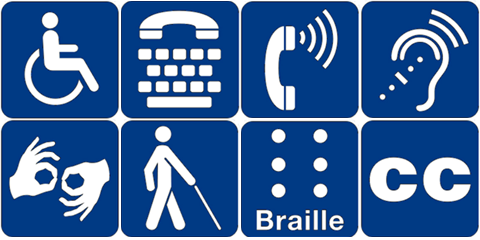 |
| |
|
|

|
 |
|
 |
Learn more about HSIN membership for campus safety. |

DHS Increases HSIN Access for Campus Public Safety
The Department of Homeland Security (DHS) is committed to sharing timely, relevant, and accurate information with its campus safety and law enforcement partners. Recently, members of the campus safety and law enforcement community raised questions about access to intelligence and analytic products, noting that these items are essential for maintaining situational awareness and safety. To meet these needs, the Office of Partnership and Engagement/Office for State and Local Law Enforcement (OPE/OSLLE), with assistance from the DHS Office of Intelligence and Analysis, is facilitating requests for
Homeland Security Information Network (HSIN) membership for interested campus safety/police departments.
HSIN is the DHS's primary mechanism for sharing sensitive but unclassified information, and will often be the sole vehicle for campus police departments to access DHS intelligence products. Federal, state, local, territorial, tribal, international and private sector homeland security partners use HSIN to manage operations, analyze data, send alerts and notices, and share the information they need to do their jobs. In general, applicants must be sworn police officers; however, non-sworn campus safety officers who are sponsored by their local municipal police department may be eligible for access to specific communities. For example, non-sworn campus safety officers sponsored by a municipal law enforcement agency may be eligible for access to the HSIN Law Enforcement community.
Information posted to HSIN originates from stakeholders responsible for many aspects of homeland security operations (e.g., fusion centers, state and local police departments), so users can be confident in the products' analyses and conclusions. In addition to receiving access to DHS products, authorized users may post their own publications (e.g., alerts, fact sheets, BOLOs) to share information with neighboring jurisdictions or request information from other departments. Examples of previously posted products related to campus safety include the DHS/Nationwide Suspicious Activity Reporting Initiative Campus Safety Fact Sheet, intelligence bulletins, and assessments on threats to special events or critical infrastructure.
Campus safety and police officers are strongly encouraged to apply for HSIN access and membership to the appropriate HSIN community. To learn more about HSIN and requesting access to a HSIN community, view OSLLE's message to campus safety and law enforcement partners. Please
contact David Hampton
, OSLLE, with any questions.
|
|
|
 |
| Download the report. |
 |

Best Practices for Sexual Assault Kits
The U.S. Department of Justice's National Institute of Justice (NIJ) recently issued a report,
National Best Practices for Sexual Assault Kits: A Multidisciplinary Approach
(PDF), that describes a victim-centered response to sexual assault cases and positively impacts sexual assault response and the experiences of victims. The report was created by an NIJ working group consisting of victims, victim advocates, sexual assault nurse and medical examiners, prosecutors, forensic scientists, and law enforcement officials in response to the Sexual Assault Forensic Evidence Reporting Act of 2013, which focuses on the accurate, timely, and effective collection and processing of DNA evidence in sexual assault investigations.
The group developed 35 recommendations that provide a roadmap for collecting, transferring, preserving, storing, and analyzing sexual assault kits. The recommendations apply to medical professionals, members of law enforcement, victim advocates, prosecutors, and laboratories. Jurisdictions can evaluate their individual needs and resources and use these recommendations to develop or enhance policies and protocols for untested sexual assault kits.
|


Planning for Students and Staff with Disabilities or AFN
Over the past several years, increased attention has been given to how institutions of higher education (IHEs) plan, train, and provide guidance to populations with disabilities or access and functional needs (AFN) after it was realized that this population needed additional attention in emergency situations. Individuals with an AFN consideration may include those who are blind or have low vision; have cognitive disabilities; are deaf or hard of hearing; have mental or behavioral issues; use service animals; have physical disabilities; have limited English proficiency; or are pregnant.
The Readiness and Emergency Management for Schools Technical Assistance Center (REMS TA) has an on-demand webinar available,
Addressing Access and Functional Needs (AFN) in School and Higher Education Emergency Operations Plans (EOPs). This webinar provides an overview of AFN integration within schools and IHEs, as well as specific information on and examples of inclusive preparedness planning. Presenters include Vance Taylor, Chief, Office of Access and Functional Needs, California Governor's Office of Emergency Services; Jill Barnes, Coordinator, Office of Emergency Services, Los Angeles Unified School District; and Anne-Marie McLaughlin, Emergency Manager, University of Massachusetts Boston. REMS TA provides access to several supporting documents for this webinar, including "
Addressing Access and Functional Needs (AFN) in School and IHE EOPs" (PDF) and "
Section 508 Compliant Presentation" (PDF) from the U.S. Department of Education, Office of Safe and Healthy Students.
The San Diego County Office of Emergency Services produced a series of
Just in Time Disaster Training videos on AFN awareness that campus safety and emergency management teams may utilize. These seven videos cover a variety of situations responders may encounter including individuals with cognitive disabilities, mental illness, who are deaf or hard of hearing, and who are blind or have low
vision.
The FEMA
Ready Campaign and Ad Council
created a video that shows people with access and functional needs taking charge to prepare themselves and their families for emergencies. The video is available with open and closed captions, certified deaf interpreter (CDI), and open captions with CDI.
For more resources on AFN, please visit our
online library and use the search tag "access and functional needs populations." You may also wish to contact your county or state emergency management agency or organization.
|
|
Professional Development Opportunities
Title: Using Essential Elements to Select, Adapt, and Evaluate Violence Prevention Approaches
Organization: PreventConnect
Date: August 28, 2017 at 2:00 PM ET
Location: Online
Fee: Free
Title: L0363 Multi-Hazard Emergency Management for Higher Education
Organization: FEMA
Dates: September 12-14, 2017
Location: Athens, TX
Fee: Free
Title: Trauma-Informed Sexual Assault Investigation and Adjudication Institute
Organization: NCCPS
Dates: September 26-29, 2017
Location: Denver, CO
Fee: Registration fee
For additional trainings and events, access our searchable
online calendar.
|
 |

|
Weekly Snapshot Directory
Access previous
Weekly Snapshot
articles in our easily searchable directory, which is updated monthly.
|
|
|
|
NEW Institute Locations
Additional offerings of our groundbreaking Trauma-Informed Sexual Assault Investigation and Adjudication Institute are now available!
|
|
|
|
|
|
News Articles
Visit our News Articles web pages for timely
resources, breaking news, and expanded information from our Weekly Snapshot.
|
|
|
|
|
|
 |
Have you signed up to receive our informative and timely emails?
|
|
|
|
 |
|